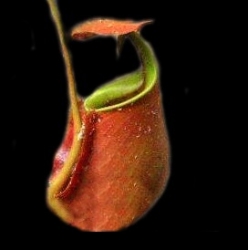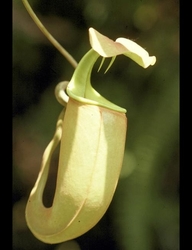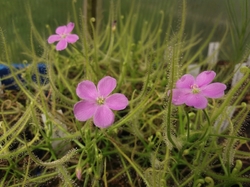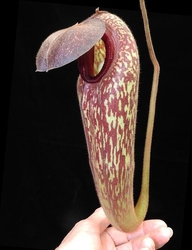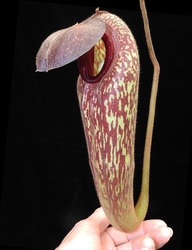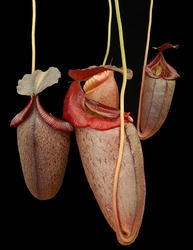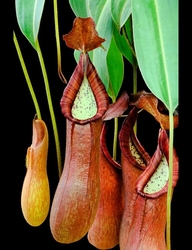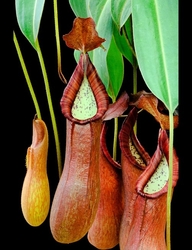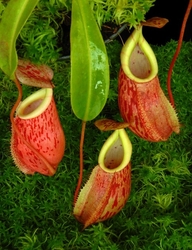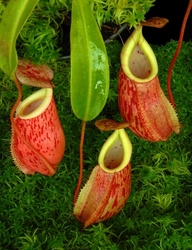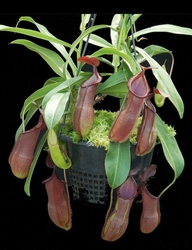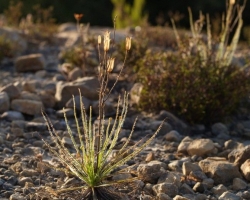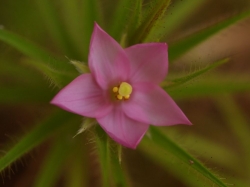.jpg)
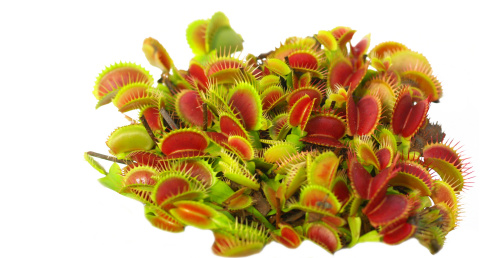
today: 163
week: 831
Total: 1583838
| catalogue number: | be3029 |
| price: | 59.99 € (65.55 $) |
In our opinion, this is the most distinctive and classic of all the lowland species – no other species comes close. Its natural habitat is the steamy kerangas forests and peat swamps of Borneo. It’s famous for its peristome teeth, giving the appearance of fangs connected to the back of the pitcher lid. Sometimes nectar can be seen secreted from the tips of these fangs which are used by the plant to attract its favorite nocturnal prey – termites. Nepenthes bicalcarata is a true lowlander and appreciates warm temperatures and continuous high humidity.
History: First introduced around 2008 as nursery-grown plants on our old PDF price list, after we closed our lowland nurseries in 2012, it became unavailable for five years. Between Sept and Nov 2017, a total of just over 100 plants were sold on the wholesale auctions, which is the last time nursery grown plants were available until Dec 2021, when only 20 plants were offered on the wholesale auctions at size medium and again in Feb 2022 another 20 medium plants were auctioned. It was added to our online shop for the first time in Feb 2022.
Description: This is chosen from an original selection of 24 clones produced from parent plants that were themselves raised from seed in our nurseries. The lower pitchers differ from those of BE-3031, in that this item has an orange flush on an yellow background, whereas BE-3031 has a red flush on an orange background.
Climate: Lowland
Cultivation Notes: As with all our lowland species, these plants have been weaned out of microprop using artificial lighting and high humidity. They are in a highly vigorous growth mode and as such, the leaves are not very hard because they are growing so extremely quickly, plus this species naturally has soft leaves anyway. Because they are so vigorous, they will establish easily and put on size quickly. The root systems are well developed, but when first received they will require high humidity at all times until settled in, even during the early handling stages.
-
2.99 € (3.27 $)
-
4.99 € (5.45 $)
-
299.99 € (327.80 $)
-
299.99 € (327.80 $)
-
39.99 € (43.70 $)
-
49.99 € (54.62 $)
-
34.99 € (38.23 $)
-
39.99 € (43.70 $)
-
29.99 € (32.77 $)
-
24.99 € (27.31 $)
AIR PLANTS - Tillandsia
2002-2023 WWW.CZPLANTS.COM ©


 angl
angl




